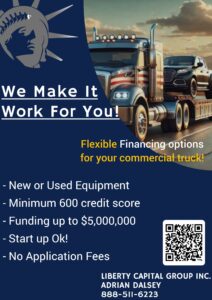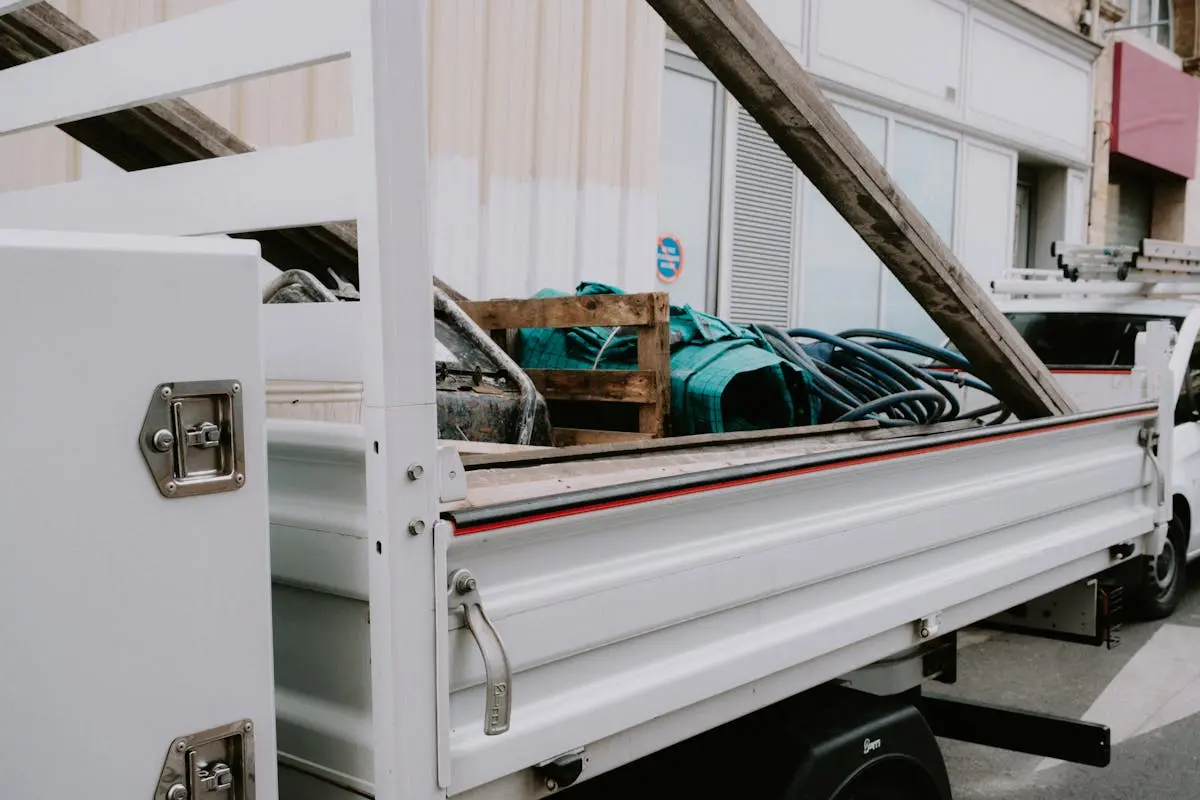A Must Know When Leasing or Financing a Flatbed Truck
If you’re in the market for flatbed truck and want to know what the flatbed truck leasing cost looks like, this is your blog for it.
In this blog post, we’ll explore all the essential details about leasing a flatbed truck. From understanding monthly lease payments and associated costs to learning tips for negotiating the best deal, we’ve got you covered. With this information in hand, you’ll be equipped to make a well-informed decision when it’s time to sign the lease.
Ok…now let’s get started!!!
The cost associated with leasing a Flatbed truck
The cost of leasing a flatbed truck can vary based on several factors, including the lease term, if new or used flatbed truck, truck mileage, purchasing through a dealer or private seller, and, most importantly, your credit score and time in business. If you have a strong credit profile, with a score above 680, and comparable debt for the amount you’re looking to borrow, you can generally secure a lower interest rate. On the other hand, if your credit score is below 600, you may face higher interest rates which might require down payment or security deposit to get approved.
To estimate leasing costs, consider this example: Leasing a new flatbed truck priced at around (45,000, financed over 5 years with 1st and last upfront payment and a )1 buyout lease at the end of the term (lease-to-own), generally a business with at least two years’ time in business will cost around $907.5 per month. However, this amount may vary based on the business and personal profile.
If your business has been operating for less than two years, many will consider you a startup. But if you have a down payment and no serious derogatory on your credit history, your monthly payment would be approximately (1150 for a five-year lease, with 10% security deposit on a **$1 buyout lease**.)
Many lenders you are required to be a homeowner, or we may ask you to put money down up to 25%.
However, if your business is new but not so good with credit and your company is brand new, then don’t expect to pay less than about $1,450 per month for those five years because of credit risk, you may be asked to put down at least 10% as a security deposit.
These prices are only estimates of what companies may charge for flatbed truck rentals, and actual rental costs for businesses can vary based on the terms and specific conditions of the rental. Companies like Liberty Capital offer competitive rates and are a suitable option for business truck rentals.
If these payments seem too high, consider opting for a good used flatbed truck, which can often cost about half the price of a new one. When purchasing a used Flatbed truck, it’s a good practice to add a $6,000 warranty to cover any potential breakdowns which sometimes can be added to the financing cost bringing your payment higher but with a security that your truck will be covered in case of a breakdown.
So, how much does it really cost to lease a flatbed truck? It depends on several factors.
Keep in mind that the worse your credit, the higher the monthly payment to lease a flatbed truck with some capital upfront as skin-in-the-game.

Factors That Can Impact Your Cost of Borrowing for Flatbed Truck Financing
There are several factors that can impact the cost of financing or leasing a flatbed truck. These include:
Down Payment or Security Deposit: Many financing transaction require upfront capital, a one-time payment made at the start of the lease like first and last payment. This amount usually represents a percentage of the truck’s total cost. A larger down payment can reduce your monthly payments. Security deposit is refundable.
Term of the Lease: The lease term is the duration over which you make payments, typically ranging from 24 to 60 months, with 36 months being the most common. A shorter lease term will result in higher monthly payments but allows for an earlier upgrade to a new flatbed truck. A longer lease will lower your monthly payments but extends your payment period.
Interest Rate – Lease Rate Factor: The interest rate is the percentage added to the principal amount, which varies based on your credit score and the lender’s policies. A higher interest rate will lead to higher monthly payments. However, for leasing there’s a notable lease rate factor relative to interest rate to determine monthly payment.
Processing Fees and Charges: Beyond the down payment and monthly payments, there are often additional fees, such as taxes, insurance, titling fees, and admin processing fees. It’s important to understand all associated fees to get a full picture of your leasing costs.
Determine Your Budget
Before you start shopping for a flatbed truck, it’s important to determine your budget, workload and will the work outlast the lease term? This will help you narrow down your options and ensure that you don’t overextend yourself financially over the life of the lease. To determine your budget, you’ll need to calculate your total costs. This includes the down payment, monthly payments, yearly insurance and any additional fees or charges.
To get an idea of the monthly payments you can expect, use a truck lease calculator or speak with a truck financing specialist at Liberty Capital. Keep in mind that the term of the lease will also impact the monthly payments – If you have over two years in business it’s possible to qualify for a term up to 5 years to keep the payment low. If you’re less than 2 years in business, you might qualify but with a down payment or term up to 48 months instead of 60 months. For established business you can qualify for $0 down, and no-payment for the first three months. But you must have some capital to show you can make payments before you start making money on this truck.
Determining Affordability?
When determining what you can afford, it’s also important to consider the length of the lease. A shorter lease will allow you to own it faster, but it may also have higher monthly payments. A longer lease will have lower monthly payments, but it will also commit you to making payments for a longer period. Consider your business situation and the needs of your business to determine the best term for your lease. If job is consistent, it might be wise to lease it for shorter term to accelerate ownership. Leasing with balloon, or lease to own compare to FMV or True Lease, where you can just return the asset/equipment, will determine what your payment budget will be.
Final Thoughts on the Cost of Leasing a Flatbed Truck
Leasing or financing a Flatbed truck can be a cost-effective way to acquire effectively. However, before committing, it’s crucial to understand all the costs involved to avoid any surprises. We’ve covered key factors that will impact your lease agreement, including monthly payments, mileage restrictions, and payment schedules, in addition to time in business, credit history and time in business. To ensure you secure the best possible deal for your needs, do thorough research and consult with Liberty Capital to get pre-approved for a flatbed truck leasing. This way, you can make an informed decision that benefits both you and your business, so you’ll understand what it takes to finance or lease a Flatbed truck.
It’s important to learn the Basics of Leasing a Flatbed Truck
If this is your first time financing or leasing a flatbed truck for your business, you might be shocked, but this is typical.
You may be considering the option of leasing like FM or 10% buyout to lower your monthly payment but will be required to pay the balloon to own the truck. Leasing a flatbed truck can be a cost-effective way to acquire the vehicle you need without committing to a large upfront payment compared to paying cash up front for the entire cost. However, it’s important to understand the basics of leasing before deciding.
First, determine your budget and the length of the lease whether accelerated payment will be beneficial over longer term. The shorter the term the lower the overall cost of capital. This will help you understand the monthly payment you can afford and how long you’ll need to make payments. It’s also wise to compare various financing or leasing options, such as $1 buyout, FMV, or 10% FMV or dealership financing which sometimes will use your personal credit as opposed to business credit, to secure the best deal. There are risks putting this type of funding on to your personal credit which can lower your score due to additional debt on your personal credit. If you miss one payment it could damage your credit score. Most equipment leasing for flatbed trucks don’t appear on personal credit but a lien on business and the truck itself.
Next, shop around for the best lease offer. This may involve researching different leasing companies and negotiating terms that align with your budget. Working with an equipment leasing broker like Liberty Capital can be beneficial as they seek to get you the best term available based on your credit and business profile. Be sure to read the fine print carefully and understand any additional fees or charges included in the lease.
Finally, you’ll want to choose the right flatbed truck for your business. Consider your specific needs and the types of loads you’ll be carrying. Research different models and features to find a truck that is reliable, efficient, and easy to maintain. Don’t forget to compare prices and leasing options to ensure that you’re getting the best deal.
By learning the basics of leasing a flatbed truck, you can make an informed decision that is right for your business.
Is FICO Score important?
Is it possible to finance a flatbed truck with bad credit but you’re likely to pay higher interest rates?
Financing companies generally prefer borrowers who have a history of making payments on time.
So, what constitutes “good credit”?
Depending on your industry. If you’re a trucking company, a credit score of 680 or less is not the same as a medical industry with 605 credit score. Industry stability matters to lenders.
Few years of credit history, and a history of making payments on a loan for a vehicle (also known as “comparable borrowing”) can be desirable attributes to lenders. Truck lenders want your comparable credit borrowing to have at least 50% of the lease amount you’re looking to finance in the past.
If you meet these requirements, you may be in a good position to finance a flatbed truck even if your FICO score is not excellent.
Click here to begin the financing process.

